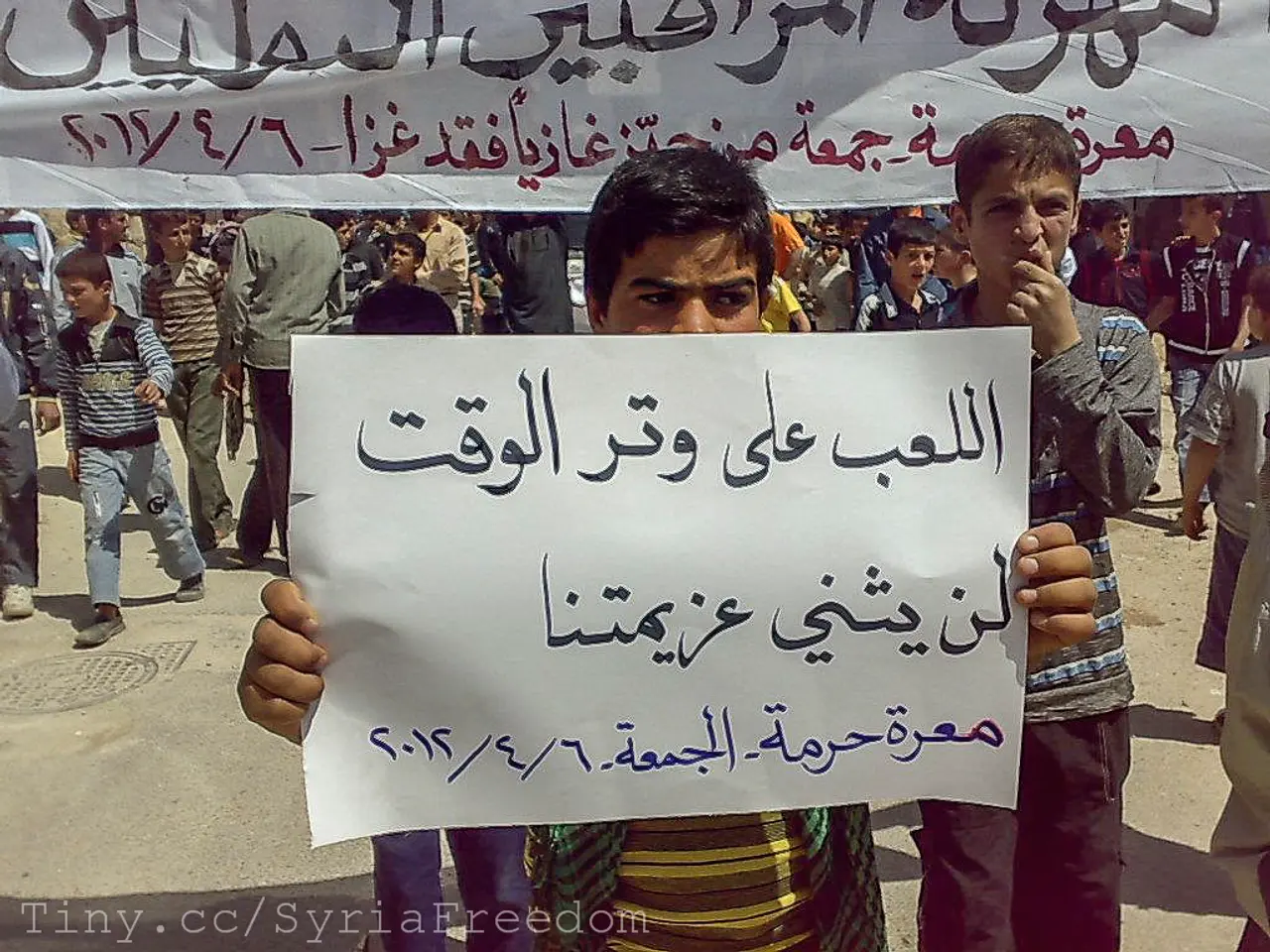Gaza Urges: Halting Benjamin Netanyahu's Desperate Escalation
In a move that has sparked international condemnation and domestic concerns, Israeli Prime Minister Benjamin Netanyahu announced on August 7, 2023, his decision to deploy the Israeli army to occupy the entire Gaza Strip. The plan involves establishing operational military control over Gaza City with the ultimate goal of controlling Gaza at large.
The plan includes sieging Gaza City, forcibly evacuating up to one million residents to newly designated "humanitarian zones," and controlling aid distribution points.
International Responses
The United Nations High Commissioner for Human Rights, Volker Türk, strongly condemned the occupation plan, calling for an immediate halt to the military takeover. He stated that the plan violates international law, risks massive forced displacement, civilian deaths, and further atrocities. The UN urges Israel to allow unrestricted humanitarian aid and to seek peaceful coexistence rather than escalation.
Germany has announced the suspension of arms exports that Israel could use in Gaza, and other states, concerned for both the Palestinians' fate and Israel's defense, are taking measures to deter Netanyahu from carrying out his plan. France firmly condemns Israel's Gaza plan.
Domestic Concerns
Some Israeli military officials reportedly objected to the plan, warning it could become a protracted, bloody urban conflict similar to Fallujah or Mosul, with high casualties for both soldiers and Gaza's civilian population. This could potentially strengthen Hamas’s position.
Opinion polls show that Israelis prioritize the release of hostages and reject military escalation. Israeli lawyers have written to Benjamin Netanyahu to denounce a potential war of aggression.
Potential Consequences
The occupation plan risks severe escalation and suffering in Gaza. An estimated evacuation of up to one million Gazan civilians under siege conditions could lead to a large-scale humanitarian catastrophe. The intensification of conflict and suffering includes increased civilian casualties and the risk of war crimes.
Politically and militarily, Israel faces challenges as military control of urban Gaza may lead to prolonged combat and loss of soldiers. The strategic wisdom of the occupation is questionable, as it could lead to heavy consequences for hostages' fate, military responsibilities, losses, and reservists' exhaustion.
In summary, the occupation plan has sparked strong international condemnation mainly based on humanitarian and legal grounds, alongside warnings from within Israel's own military about its feasibility and consequences. The broad consensus among international observers is that the plan risks severe escalation and suffering in Gaza.
War-and-conflicts escalate as international responses to Israel's Gaza occupation plan are negative, with the United Nations High Commissioner for Human Rights Volker Türk strongly condemning the plan and calling for an immediate halt. Politics are shifting as Germany suspends arms exports, France condemns Israel's plan, and Israeli lawyers denounce a potential war of aggression.








